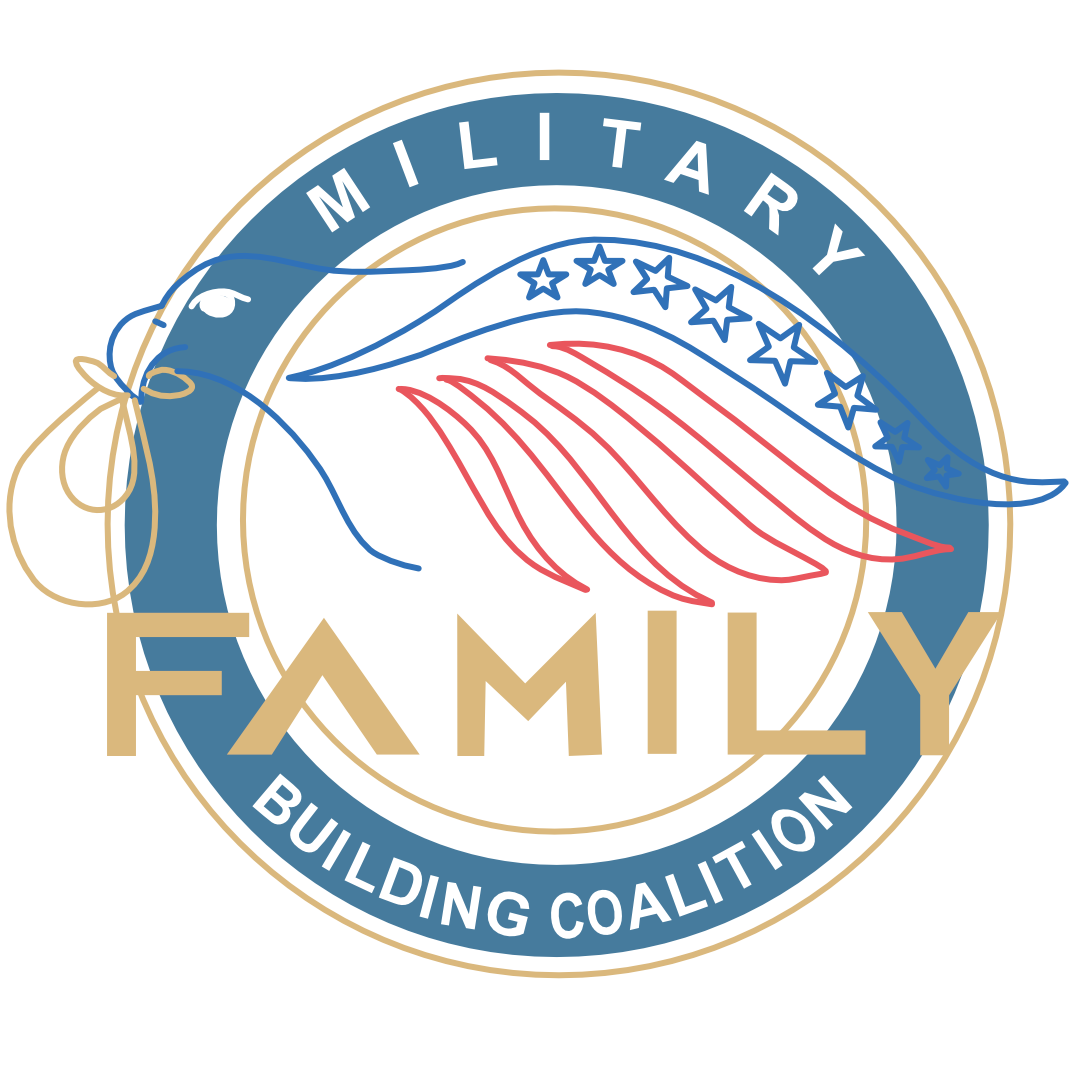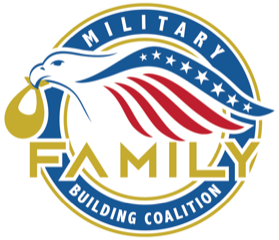Majority of Military Family Respondents Report Family Building Challenges in 2021 Survey Results
The Military Family Building Coalition contributed as Family-Building Subject Matter Experts in Blue Star Families’ 2021 Annual Military Family Lifestyle Survey
Majority of Military Family Respondents Report Family Building Challenges in 2021 Survey Results
The Military Family Building Coalition contributed as Family-Building Subject Matter Experts in Blue Star Families’ 2021 Annual Military Family Lifestyle Survey
For the first time, Blue Star Families’ annual Military Family Lifestyle Survey (MFLS) asked military-connected families about their family-building challenges, based on expertise shared from the Military Family Building Coalition (MFBC). Family building refers to the different paths to parenthood that individuals or couples can choose to create or expand their family, to include assisted reproduction through advanced medical technology, all forms of adoption, as well as third party reproduction, and reciprocal reproduction. A large majority - 64% of active-duty family respondents - reported having family building challenges while serving in the military, including the financial cost and stressors related to efforts to build their families (including through adoption, medical treatment, surrogacy, etc.). Furthermore, the proportion of active-duty spouse respondents reporting a lifetime experience of miscarriage (34%) is notably higher than the lifetime prevalence of miscarriage among civilian populations (26%). While miscarriage is only one of many family-building challenges, the higher lifetime prevalence among comparatively young active-duty spouse respondents may indicate a need for further exploration of all family building challenges military families face.
Current military health care, TRICARE, does not cover “non-coital reproductive procedures, services or supplies,” which creates a policy-driven barrier to comprehensive care and coverage for active duty members and their families. For example, cryopreservation, considered baseline preventive care in preserving an individuals’ fertility, is not covered despite the evidence of exposure to fertility-compromising factors present in military service. The lack of comprehensive reproductive health care forces the military member to navigate a complex and inconsistent web of rules to build the families they desire during the overlapping time frames of military services and having children. The MFLS findings also help underscore that current policies put some groups, such as female service members, single service members, those unable to use their own genetic material, and LGBTQ+ couples at a disadvantage when pursuing modern family building services.
MFBC was founded on the assumption that family-building challenges were an underrepresented source of difficulty resulting in multiple stressors for active-duty military members, inclusive of financial, relationship and mental wellness. MFBC promotes expanding policy and comprehensive care for family building in direct support of national security and warfighting from the lens of retention, readiness and economics. The 2021 MFLS is the largest and most comprehensive of its kind, gaining data from over 8,000 military and veteran family respondents. MFBC collaborated with BSF and provided subject matter expertise to develop an entirely new section of questions for this year’s survey regarding the range of family building challenges that affect military families, including miscarriage, fertility challenges, fecundity, erectile dysfunction and hormonal imbalance.
Common factors of military lifestyle - frequent and unpredictable separations, operational commitments, stress, PTSD, and exposures to hazardous/toxic materials - may all impact family building. In this year’s report, 42% of active-duty family respondents reported that military service created challenges for having children, specifically on the desired number and spacing of children. TRICARE currently uses a definition of infertility that requires that the service member present a lack of pregnancy resulting from 12 consecutive months of unprotected intercourse, or six months if over 35 years old. This definition directly disadvantages military families who are frequently not co-located for a consecutive 12 months, especially dual military couples with co-location constraints due to service. Additionally, this definition fully excludes same sex couples. For context, active duty family respondents reported that more than one-third (31%) had been separated for a total of six months or more within the past 18 months and 42% reported that the military service created challenges to having children.
Results from various communities within the military were even more revealing. For active duty females, 57% reported family building challenges, compared with 28% of active duty male respondents. For members of the Special Operations (SOCOM) community, families responded that nearly half (49%) indicated that the military created challenges in family building, compared with 42% of their non-SOCOM peers. Among the LGBTQ+ military community, over half (54%) cited family-building challenges due to military service (and 45% of LGBTQ+ respondents who sought treatment from a military treatment facility said they did not get family building support they were looking for from military treatment facilities).
Underlying these challenges is the financial stress that family building challenges in the military cause. More than three-quarters (77%) of active duty families who tried to build their families through adoption, medical treatments, surrogacy, and/or fostering to adopt, reported out-of-pocket expenses as they have built their families through adoption, reproductive procedures, surrogacy and fostering-to-adopt (88% among LGBTQ+ families). Four in ten respondents who had out-of-pocket expenses associated with family building spent more than $5001 out of pocket on family building - a significant cost for military members who are often experiencing these challenges and medical costs specifically due to their military service.
MFBC was proud to contribute our subject matter expertise to the 2021 survey questions on family building challenges and to the recommendations for military leadership, the Defense Health Agency, the Veterans’ Health Administration, and Congress to expand access to care and coverage for comprehensive family building support. Recommendations include providing instruction to providers to loosen “time trying” requirements when working with military families due to frequent time apart, expanding family-building support to ensure equitable treatment and treatment options for special populations, increasing military treatment facilities offering full fertility services, expanding access to fertility treatments for female Veterans, and requiring a report exploring fertility and family-building challenges for military and Veteran populations. In addition to the recommendations included in the Blue Star Families report, MFBC is calling on the Department of Defense to provide baseline fertility testing and fertility care navigation, and offering elective cryopreservation to active-duty service members. We believe this expansion of care is essential to meet the needs for retention and readiness of a modern military force, and 11% of active duty survey respondents confirmed that family building challenges are a reason they would leave the military.
See the full 2021 Annual Military Family Lifestyle Survey Family Building Comprehensive Report here and more information about the full Survey Report here.
About Military Family Building Coalition
The Military Family Building Coalition was founded in 2020 as the first non-profit Military Support Organization to take on family building challenges for active duty military families. We partner with other Military Support Organizations like Blue Star Families and infertility support organizations like the American Society of Reproductive Medicine and RESOLVE: The National Infertility Association to educate military families and the public about the lack of care and cover for active duty military members trying to build their families while serving. For more information. Visit www.militaryfamilybuilding.org
About Blue Star Families
Blue Star Families is the nation’s largest grass-roots military family support organization, with a mission to support military families to improve military readiness. Its distinctive approach builds stronger communities around military families through knowledge and programs that address the unique needs of those who serve. Blue Star Families’ nationally recognized surveys and analysis give military families an important voice that informs policymakers and its military family programs. It uses the power of its collective resources and cross-sector collaborations to make a difference in the lives of hundreds of thousands of members of military families to strengthen the troops, their families, and our nation as a whole. For more information, visit bluestarfam.org




